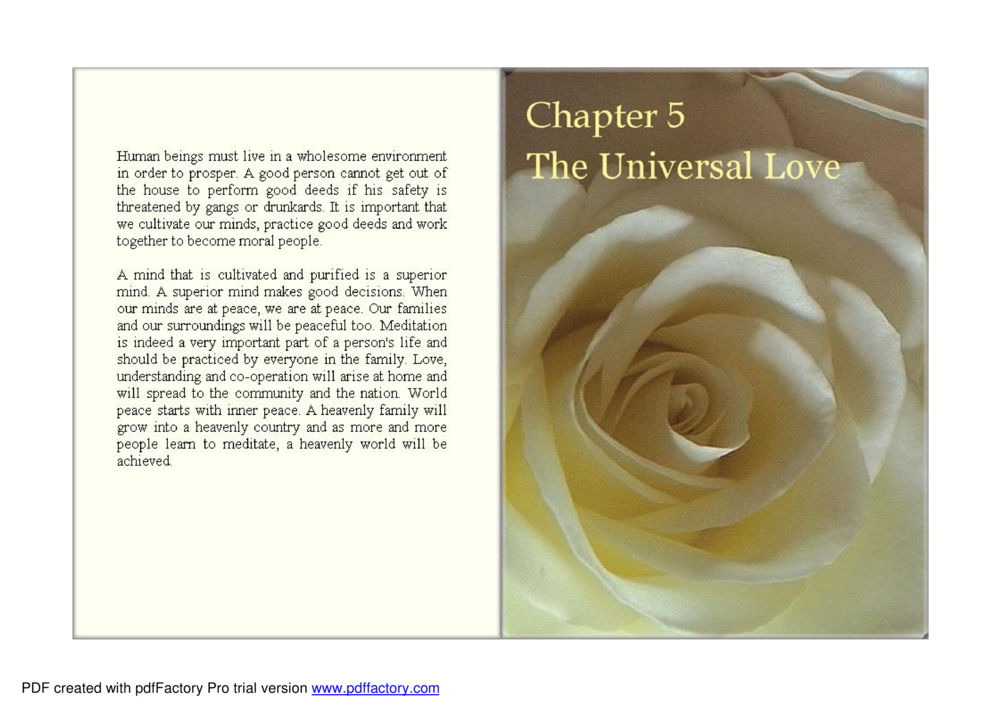The Importance of a Wholesome Environment : หน้า 28/62
Lovely Love : หน้า 28/62 Exploring the necessity of a safe environment for nurturing moral values and promoting mental peace through meditation and cooperation.
0 ครั้ง

สรุปเนื้อหา
Human beings thrive in a wholesome environment, free from threats. A mind cultivated through good deeds promotes peace within families and communities. Meditation is essential for personal growth and societal harmony. The journey to world peace begins with achieving inner tranquility, fostering love and cooperation at home, which can eventually lead to a heavenly society. Fostering these values can transform the world into a better place. For more insights, visit dmc.tv.
หัวข้อประเด็น
- The role of environment in personal growth
- The impact of mental peace on community
- Importance of meditation in daily life
- The connection between love and cooperation
- Global peace initiated by inner tranquility
ข้อความต้นฉบับในหน้า
Human beings must live in a wholesome environment
in order to prosper. A good person cannot get out of
the house to perform good deeds if his safety is
threatened by gangs or drunkards. It is important that
we cultivate our minds, practice good deeds and work
together to become moral people.
A mind that is cultivated and purified is a superior
mind. A superior mind makes good decisions. When
our minds are at peace, we are at peace. Our families
and our surroundings will be peaceful too. Meditation
is indeed a very important part of a person's life and
should be practiced by everyone in the family. Love,
understanding and co-operation will arise at home and
will spread to the community and the nation. World
peace starts with inner peace. A heavenly family will
grow into a heavenly country and as more and more
people learn to meditate, a heavenly world will be
achieved
Chapter 5
The Universal Love
PDF created with pdfFactory Pro trial version www.pdffactory.com
หน้าหนังสือทั้งหมด
หนังสือที่เกี่ยวข้อง
Load More






























































